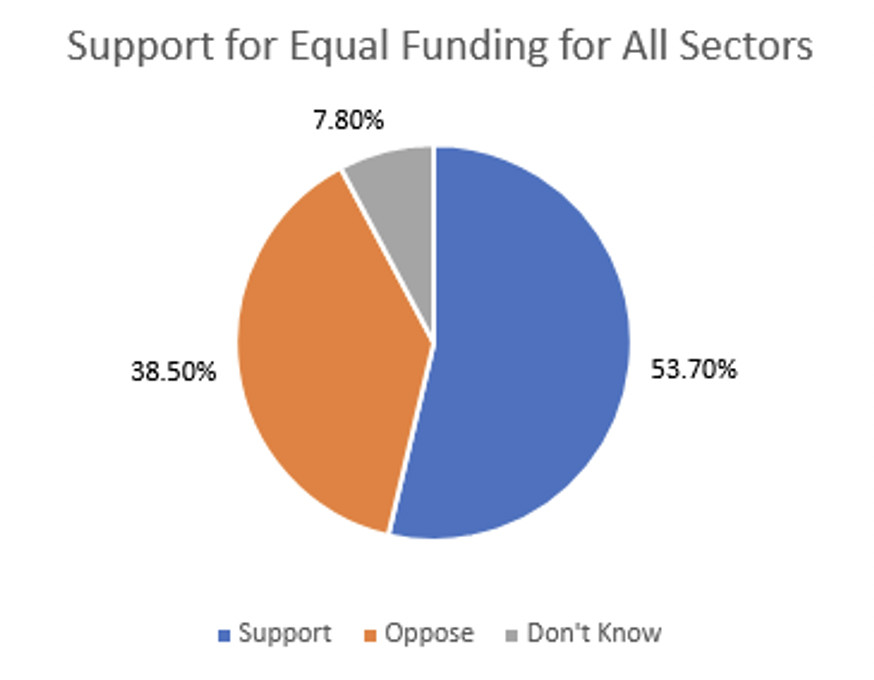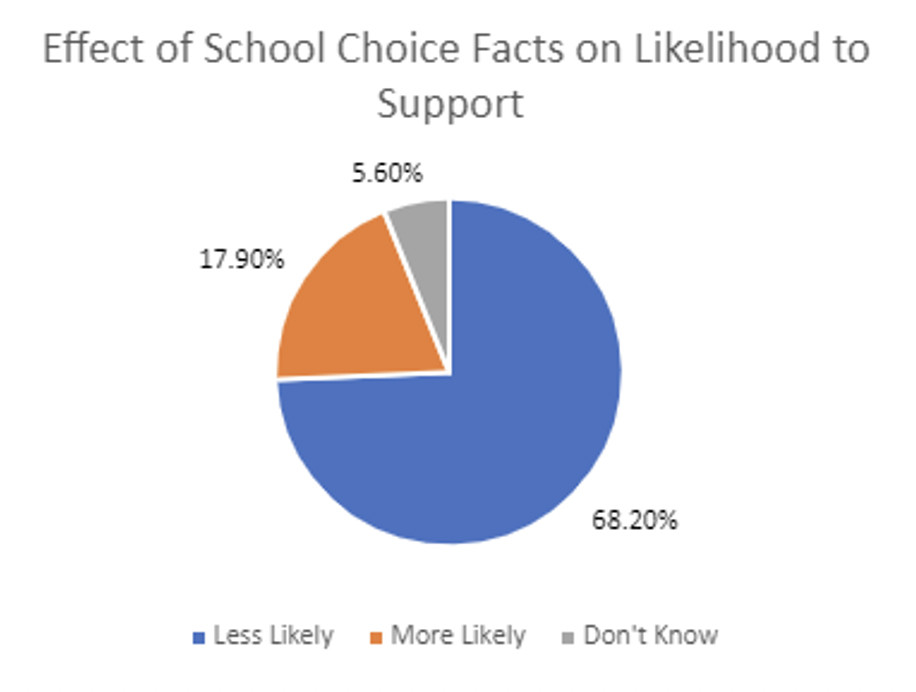Will Flanders
Recently, School Choice Wisconsin released the results of a statewide poll on a number of issues surrounding parental choice in the Badger state. The results show just how far the tide has shifted in favor of parental choice, and how out-of-step politicians that continue to support the status quo are. The poll of 700 likely voters was conducted from February 13-16. Below, we highlight some of the key results and their implications for policymakers.
Support for Making School Choice Universal
Currently in Wisconsin, access to school choice programs is limited to families with relatively low incomes. For the statewide Wisconsin Parental Choice Program (WPCP), the income cap is 220% of the federal poverty limit. For the Racine (RPCP) and Milwaukee (MPCP) programs, the income limit is 300% of the poverty limit. For many middle-class families that would struggle to afford private schools, this makes a private education all but impossible.

A majority of Wisconsinites supported removing these antiquated income limits. 64.6% supported removal, while only 31.1% expressed a desire to keep the restrictions in place. AB 970/SB 974, currently being considered in the Wisconsin legislature, would bring this to fruition by eliminating the existing caps on all of the choice programs.
Support for Equal Funding Across Sectors
Under current law, voucher and charter school students in Wisconsin receive significantly less funding per student than students in traditional public schools. The average public-school student in Wisconsin receives more than $11,500 per student. Most charter school students receive and voucher students receive an average of $8,498. No school district receives less funding than any voucher or charter school per student. WILL has pointed out these funding inequities, and has advocated reforms to create equality across sectors.

A majority of Wisconsin’s likely voters also support WILL’s position. 53.7% of respondents said that funding should be equal compared to only 38.5% who said that something like the current system should be maintained.
The Facts About School Choice Matter
The record of school choice in Wisconsin is strong. Research from WILL and others has found that students who participate in school choice perform better on state exams. Other research has found that choice participants are more likely to graduate from high school, and less likely to become involved in criminal activity. When respondents were informed of these advantages, 68.2% said that this information made them more likely to support school choice, while only 17.9% said it made them less likely to do so. This included 79% of Republicans, 63% of independents, and even 43% of Democrats.

Supporters of the Public-School Monopoly Out of Touch
Unfortunately, many legislators are still toeing the line of the public school monopoly. Recently, Madison Representative Lee Snodgrass tweeted, “If parents want to ‘have a say’ in their child’s education they should home school or pay for private school out of their family budget.” WILL responded to the since-deleted Tweet here. The poll results show just how out-of-touch these remarks are with the people of Wisconsin.

About 59% of respondents said that such remarks would make them less likely to support a candidate, while only 28% said it would make them more likely. Legislators like Snodgrass might want to reevaluate if blind loyalty to teachers’ unions is still the winning position it used to be.
A Rising Tide of Parental Empowerment
These poll results back up what we have all experienced anecdotally: parents are tired of the status quo, and are demanding more options louder than ever before. This phenomenon is not limited to Wisconsin: in states like Virginia, support for school choice was central to the electoral victory of now Governor Glenn Youngkin. Those that have long stood in the way of progress on school choice would do well to recognize this rising tide before it’s too late.